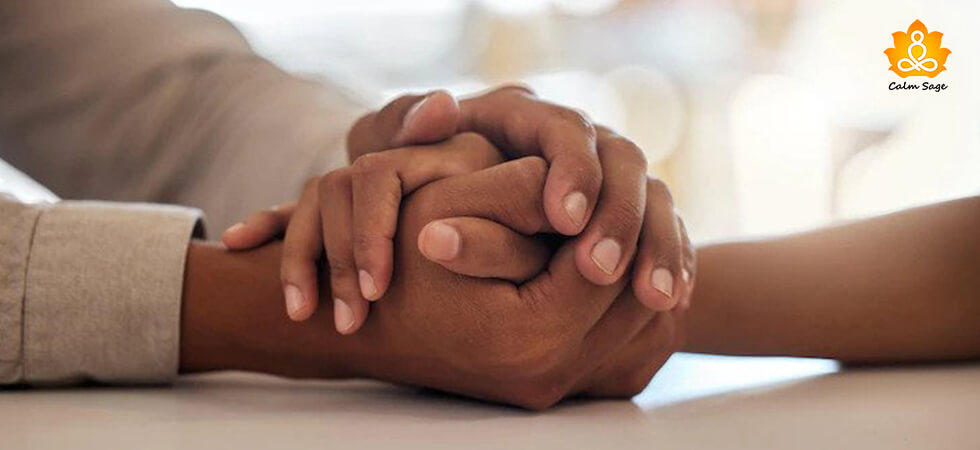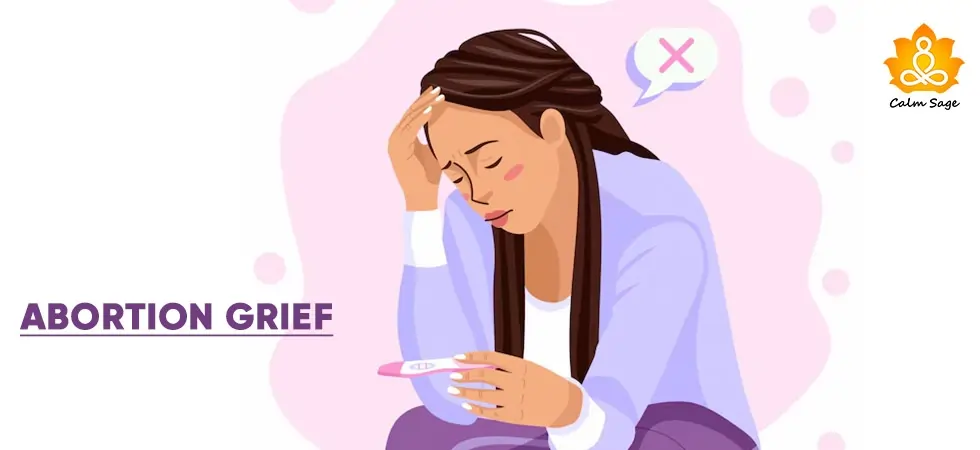All You Need To Know About Compounded Grief

Grief is one of the feelings which is difficult to cope with. It can be caused due to previously experienced challenging situations, roller-coaster family dynamics, sudden loss or death of a loved one, or current mental state. Whatever the reason, sometimes grief can become worse and grief can hide various emotions under the carpet.
According to psychology, there are different types of grief, complicated grief, anticipatory grief, compounded or cumulative grief, and disenfranchised grief.
The fact is that grief does not just go away with time, sometimes, we may learn to live with the grief, and sometimes, we need to take the help of a mental health professional! In this blog, we will be learning about compounded grief.
This blog covers what Compounded grief is, its signs and symptoms, causes, coping, and management. So, let’s get started.
What is Compounded Grief?
Compounded grief also known as cumulative grief is defined as a series of losses that occurs over a brief period of time. An example of compounded grief can be the sudden loss of a loved one, followed by a loss of a friend, pet, or someone else, and then the loss of a job, opportunity, or something mentally exhausting or challenging.
According to the research, compounded grief is caused due to different losses or causes affecting different areas. But at the same time, levels of intensity are also different, and coping becomes much harder due to the compounding effect.
It is difficult to heal from compounded grief because other circumstances develop before the person can find an opportunity to heal.
Signs and Symptoms of Compounded Grief
Below mentioned are some of the common signs and symptoms of compounded or cumulative grief:
- Anger
- Anxiety
- difficulty functioning at work
- Disbelief
- Distress
- Emotional numbness
- Guilt
- Helplessness
- Insomnia
- Inability to perform everyday tasks
- Loss of appetite
- Being Overwhelmed
- Sadness
- Social isolation
- Shock
- Yearning
In some cases, it may take weeks or months for someone experiencing compounded grief to regain the balance or return to the baseline level of functioning again.
Risks and Complications Related to Compounded Grief
Cumulative or compounded grief can cause certain complications that need to be treated or managed right away:
1. Avoidance
When someone goes through multiple losses in a short span, they are naturally inclined to shut down their emotional selves and they start avoiding the pain. The major sign of avoidance is that they are fatigued for a long time. The fact is that avoidance prolongs the grief and it makes it more compounded.
2. Numbing activities
Avoidance is a common sign of compounded grief which can also be carried out by numbing activities. In direct words, in order to avoid grief, people start doing activities that numb their emotions like binge-watching, alcohol consumption, and more.
3. Strained faith
For some people, it might happen that they start questioning their faith. They start feeling like they are being punished or why is god allowing so much struggle or pain in their life?
Causes of Compounded Grief
Below are some of the possible causes of compounded grief:
- Financial loss
- Sudden loss or death of a loved one
- Losing your job or financial loss at business
- losing your pet
- Getting divorced or untold break up with a partner
- Being diagnosed with a physical or mental health condition
- Watching a loved one battling a serious condition
- losing cognitive, health, or mobile abilities
- Losing your valuables or possessions
- Losing your independence
Diagnosis and Treatment of Compounded Grief
If you think you or your loved one is experiencing or going through a rough time related to grief, it is always helpful to connect with a mental health professional for the right support.
As of now, compounded grief does not have an official diagnosis. However, it can be diagnosed based on assessment, evaluation, and symptoms of the client.
Based on the evaluation, the therapist or professional will choose the right therapy for the client such as:
- Cognitive behavioral therapy
- Acceptance and commitment therapy
- Traumatic grief therapy
- Complicated grief therapy
- Group therapy
- Art therapy
- Play therapy
Coping and Management of Compounded Grief
The fact is that overcoming compounded grief takes time and sometimes it really does not go away easily, you might have to take the support of a loved one or mental health professional. To make your healing journey easy and effective, you can take the help of the below-mentioned coping tips for compounded grief along with therapy sessions:
1. Don’t suppress your emotions; instead, allow your emotions to come out
To overcome grief, it is really important to let your emotions come out so that you can accept and move forward in your life. Suppressing your emotions will only hurt. Therefore, start expressing your emotions with your loved ones or therapist so that you can process your emotions. While doing this, make sure you give yourself time to accept and process your emotions.
2. Honor your losses and accept the reality
Honoring your loss is one of the hardest parts we have to deal with. But once done, it can help us with a sense of closure and brings us closer to acceptance. Therefore, provide yourself time, honor your loss, and accept reality.
3. Keep your loved one or support system close
During the process, do not lose your own identity, and be compassionate towards yourself so that you can accept the reality, move forward, and live your life positively. Take good care of your emotional and physical well-being.
4. Give yourself time and don’t be so harsh on yourself
Allow yourself time to process emotions and move on. Do not get yourself caught up in the saying, “move on.” Take your time, practice self-care, be compassionate, and most importantly unlearn to suppress your feelings. Know that, it’s okay to grieve but it’s not okay to harm your mental or emotional well-being. Take good care of your overall well-being and stay calm.
5. Try to find the purpose again
During grieving, it gets difficult to find the purpose again, but don’t worry now you can easily regain your purpose with the help of this blog. According to therapists, “loss helps us put things in perspective and helps in redefining what’s important.”
Therefore, you can take the the help of this opportunity to find your purpose again and live the life you always wanted. You can use this opportunity to provide yourself with time to do things that are aligned with your values and brings you peace.
6. Keep your loved ones close
During the healing journey, keep your loved ones close. Try to spend time with your family members and friends. Try to open up about your feelings and emotions so that they can help or support you in the right manner. Additionally, allow them to help you, and avoid spending time alone!
7. Seek professional help whenever you need it
Always remember that you can seek the support of mental health professionals whenever you want. You can join a support group, webinar, or classes to learn new ways to cope with your feelings and move on.
Get 20% Off on Betterhelp Session
Takeaway!
If you have recently suffered a loss or multiple losses, please know that it is okay to feel sad, lost, or grieving, at the same time, it is also okay to feel scared, numb, anxious, and angry.
Everyone struggles to cope with their grieving. It’s completely okay to feel like that! However, you can learn to manage or cope with your grief by working through your emotions, focusing on one thing at a time, and seeking support from your loved ones, support system, or mental health professionals1
It might take some time but definitely, but you are going to regain the balance and move forward with a purpose!
I hope this blog helps you understand all you need to know about compounded grief. Comment down and share your views on the same. For more such content, connect with us on all social media platforms.
Thanks for reading!
Next Read:
6 Healthy Coping Skills To Help You Process Your Grief
The Five Stages of Grief:Be Your Own Healer
Grief Art Therapy: Can Artistic Expression Help Cope With Grief And Loss?




















